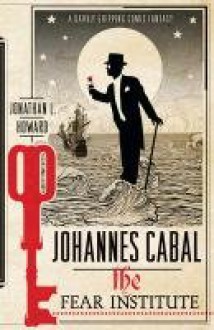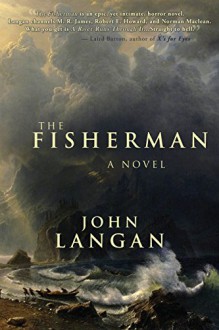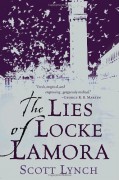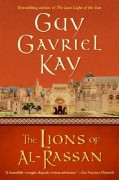
My first GGK and the rest of his oeuvre instantly becomes Must Read. If he ever does a London signing I’ll be there, just to check he’s real and not from outer space. This novel is utterly, exquisitely, wonderful.
A young Kindath (Jewish) Doctor, Jehane, practising in the Asharite (Muslim) city of Fezana, is summoned by the genial Khalif-killing Ammar ibn Khairan to administer to a sick family friend. To the north lies the split Jaddite (Christian) kingdom of Esperana and despite the tributes paid tensions are brewing. What follows in Fezana becomes known as the “Day of the Moat” and if you think “Game Of Thrones” has tailed off and George isn’t going to finish the books anytime soon stop everything, get thee to your bookseller of choice and put your phone on mute. “Lions” is intoxicating.
Sometimes, rarely actually, you come across a writer who, when it comes to writing a review of his material, renders you painfully aware that your facility with words is as naught compared to his. This is an exceptionally well written novel – you know you’re in safe hands right from the off – and once you get a handle on the geography and the alt-faiths in play the characterisations and storytelling verve sweep you away. The storyline is complex but clear (huge kudos for the clarity, at no point was I lost) with political maneuverings, divided loyalties, romance, sex, a fantastic arrow shot from Miranda Belmonte, a young boy with a touch of farsight, a young solider wondering whether he’s made the right career choice and above all peoples of different faiths coming together to do incredible things while the world burns around them. While the prologue scene of assassination is a great hook (and has far-reaching consequences) for my money it’s with the introduction to Jehane in Chapter 1 where Kay’s supernatural talent for characterisation kicks in. This novel has many passionate things to say about faith and civilisation but that difficult to pin down, secret sauce, to my mind, is Kay’s ability to really make you connect with the characters. No exaggeration, while reading this on the London Underground there were moments I had to put it aside because I was close to bawling my eyes out.
Kay suggests beauty, poetry, friendship, family and inter-faith solidarity as the hallmarks of civilisation and they all go straight out of the window when Kings start plotting. Ragosa has a carnival the day before horrifying things start happening and the contrast is stark. Characters of all faiths in this novel are merrily sexually liberal, Khairan and Belmonte both acknowledge their manly love for each other, while Jehane, woman of agency though she is, has at least three men in play at one point. Good for her. Kay calmly depicts people of different faiths getting on perfectly well with each other on the micro level, but viciously slaughtering each other on the macro. The growing friendship and respect is never hammered home, you just start to slowly notice it (“proof that men of different worlds can blend and mingle those worlds”) until events crescendo to that medical procedure which never could have occurred without cooperation and then the final, tragic, silhouetted encounter between Rodrigo Belmonte and Khairan, “the two most brilliant comets in the sky”. All of this plus knock-out lines: “The deeds of men are as footprints in the desert”; “Work was sometimes the only barrier there was between life and the emptiness beyond”; “Sometimes the heart’s arrow found its way to certainty despite the cautionings of a careful nature” and above all “Destroy Cartada”. Finally, leaving three full wineglasses on the rim of a fountain as your final image in a novel like this is beyond elegant. Bravo!
So yeah, I liked it. I’m pretty shell-shocked, actually. It’s so great when you have a first encounter with an author that makes you want to read everything they’ve ever written. Fingers crossed Amazon or Netflix or HBO or whoever don’t snap this up and turn it into just another piece of good-looking content. This sort of novel deserves to be cherished for what it is. Then again “some people you just couldn’t help, no matter how you tried.”

 Log in with Facebook
Log in with Facebook 


















